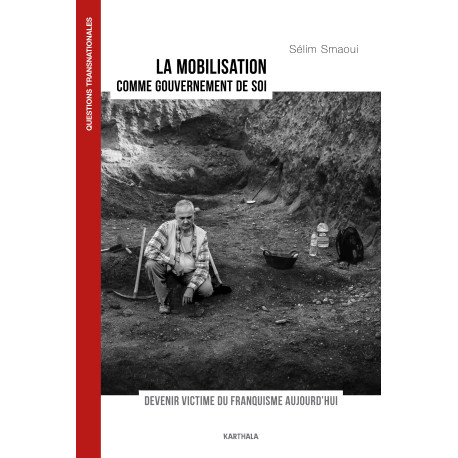Mobilisation as self-government.
Becoming a victim of Francoism today
par Sélim Smaoui
Summary
Since the early 2000s, there have been major mobilisations in Spain investigating the state violence perpetrated in the country during the Civil War and the Franco dictatorship. This book analyses how citizens are learning to reclaim the violent history of the "victims of Francoism" and to become part of a militant and combative community. Sélim Smaoui's investigation covers the period from 2000 to 2015, and was conducted at close quarters with the individuals involved in this remembrance movement. Following them step by step, the author traces the progress of those who, from a few buried memories, came to open the mass graves, name their torturers and give voice to a violence never before publicly evoked. The collectives that accompany them in this struggle also contribute to a profound redrawing of their intimacy. This kind of commitment involves working on oneself, revisiting social identities and breaking with the self-evident political order.
Through his journey among the victims and their families, Sélim Smaoui shows us how these mobilisations create a space for governing critical behaviour, leading individuals to emancipate themselves from state norms and conform to the alternative norms of the social groups that frame their passage into politics. His book is a contribution to our thinking on contemporary forms of resistance, and to our understanding of the ways in which collective mobilisations can (re)politicise memories and subjectivities.
Cairn digital version (coming soon)

Author
Sélim Smaoui has a doctorate in political science from Sciences Po Paris. Winner of the Mattei Dogan Foundation/AFSP dissertation prize, and a former member of the Casa de Velázquez and the FNRS as a research fellow, he is attached to the CRAPUL and teaches at the University of Lausanne.
Publication date
22 May 2025
Contents
Introduction
Chapter 1: Becoming close to the disappeared, reconstructing family history
Chapter 2: Becoming a witness: the ethics of remembrance by a former inmate-typographer
Chapter 3: Building a family memory, finding fulfilment. A look back
Chapter 4: Being one of the victims
Chapter 5: A militant domestication of international standards
Chapter 6: The socialisation of memory as a counter-power
Chapter 7: Transnational struggle and the transformation of behaviours
Chapter 8: Disobeying by conforming